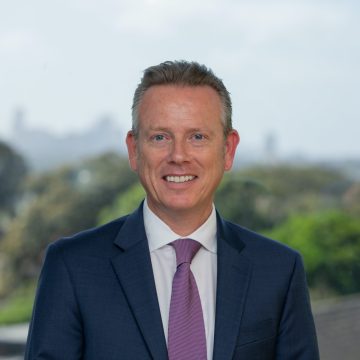What future the WTO?

James Scott
Senior Lecturer in International Politics
Department of Political Economy, King’s College
London, UK

Rorden Wilkinson
Professor of International Political Economy and Deputy Vice-Chancellor, Academic Macquarie University
Sydney, Australia
There are good reasons to ask what the future may hold for the World Trade Organization (WTO). The organisation has been unable to conclude a far-reaching trade deal since its inception in 1995. Certainly, agreements have been reached; but their impact has been somewhat underwhelming. The function of the WTO’s dispute settlement system has been significantly curtailed by the blocking of appointments to the Appellate Body by the United States. And, WTO members have had few opportunities to get together in recent times, having only just met as a ministerial conference for the first time in four-and-a-half years because of delays caused by COVID-19.
Moreover, recent events have not been particularly conducive to allowing a trade organisation to thrive. Consecutive US administrations have tended more towards unilateralism than multilateralism; and the pandemic and the war in Ukraine have significantly disrupted global trade. Recessionary pressures are currently gathering. And COVID-19-highlighted supply chain issues and geopolitical tensions are conspiring to redraw the global production landscape, as governments of all political leanings explore “on-shoring” or “reshoring”, or else drawing components from allied countries—so called “friend-shoring”.
So, what does the future hold for the WTO? Its latest ministerial conference (MC12 in WTO parlance) gives some insight. In June 2022, members agreed a package of outcomes comprising an agreement on fisheries subsidies, a bundle of measures in response to the pandemic and the food price crisis, and an extension of an existing agreement not to place tariffs on electronic commerce. The outcome was hailed by the Director-General (DG) Ngozi Okonjo-Iweala as “unprecedented”, signalling that the WTO members had found a new sense of purpose. It was not, however, without significant limitation.
The deal on fisheries was welcome. Yet, despite over 20 years of negotiating, the agreement tackled only the subsidies paid to vessels engaged in illegal, unregulated or unreported fishing and those supporting the fishing of clearly overfished stocks. Attempts to control broader subsidies that encourage overcapacity and therefore overfishing were excluded from the agreement, severely limiting its contribution to solving the problem.
MC12 also included an agreement aimed at enhancing the ability of poor countries to access the medicines needed to tackle COVID-19—most notably vaccines—with only 19.7% of people in low-income countries currently vaccinated. However, opposition from pharmaceutical companies and the countries in which they are based—particularly the EU, UK and Switzerland—ensured that the agreement was watered down to reaffirming the existing rights that poor countries already have.
More positively, agreement was reached to ensure that WTO members do not prevent the exportation of foodstuffs to the World Food Programme; and key elements of WTO law were reaffirmed to try to ensure that the measures individual countries take to protect their own citizens from rising food prices do not undermine the food security of others.
These outcomes cannot be dismissed, particularly when getting any sort of deal appeared challenging. That the obstacles were overcome is a personal achievement for DG Okonjo-Iweala, whose personal style and political abilities were key to the successful outcome.
Nonetheless, fundamental problems remain. Most notable among these is the ongoing crisis in the Appellate Body, with the US reluctance to appoint new members ensuring that appeals cannot be heard. This hampers considerably the WTO’s ability to manage trade through the rule of law—one of the foundational principles of the organisation.
Moreover, members remain divided about the role and future direction of the organisation. One such division relates to what the members should be negotiating. Some demand that the core elements of the now-abandoned Doha Development Agenda should be resolved before new topics are brought to the table. This includes addressing longstanding commitments to deliver better benefits to developing countries and redressing some of the inequities of the past. Others argue that the trade agenda needs to move on and address contemporary challenges that are currently being ignored.
Lurking behind the scenes are ongoing commercial tensions between the US and China. China continues to claim developing country status in most areas of WTO negotiations, enabling it to take advantage of flexibilities and lesser commitments. The US argues that China has failed to abide by the spirit of the WTO and is using widespread state support to shift trade patterns in its favour. The fundamental misalignment of perceptions of China’s position and its obligations within the global economy shapes all current WTO politics.
So, while it may be the case that the outcome of MC12 is something of a relief, the future of the WTO remains uncertain. Economic nationalism is on the rise and the principle of multilateralism it is under pressure. And the WTO has yet to show that it can mount a robust defence.
Expert article 3271
>Back to Baltic Rim Economies 4/2022
To receive the Baltic Rim Economies review free of charge, you may register to the mailing list.
The review is published 4-6 times a year.
